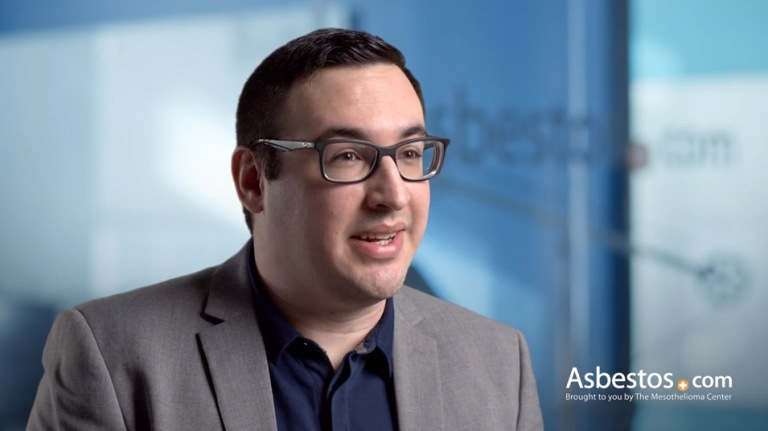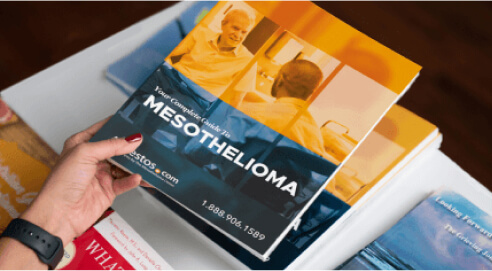Guide to Asbestos in the Home
Written by Michelle Whitmer | Edited By Walter Pacheco
Homes built before the 1980s could expose homeowners, their families and others to asbestos. It may hide in cement, floor tiles, insulation, walls and pipes. Our Guide to Asbestos in the Home can help protect you and others from exposure.
If you’re doing work on your home, like taking down walls or replacing floor tiles, take caution. You could contaminate the air with toxic asbestos fibers.
Our Guide to Asbestos in the Home explains asbestos and its dangers. It explains what to do if you suspect asbestos is in your home. It covers the dos and don’ts of handling asbestos. Finally, it provides other tips to keep your family and others safe in your home.
Is Asbestos in Your House Dangerous?
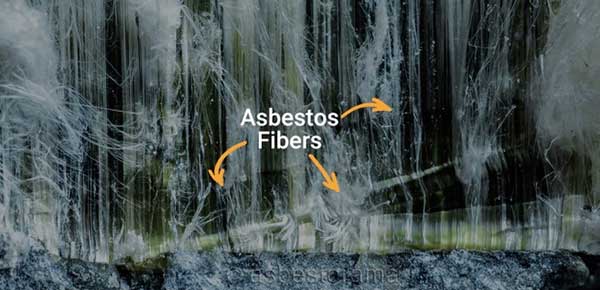
Asbestos in your home can be dangerous if disturbed. If licensed professionals encapsulate it, or it remains in good condition and undisturbed, the risk is lower. But as asbestos ages, wears down or is disrupted, the risk increases. No amount of exposure to asbestos is safe. Prolonged or repeated exposure can cause mesothelioma, lung cancer and other asbestos-related diseases.
Asbestos fibers can get stuck in tissues in your body. These fibers in your body can cause irritation that over time can lead to the development of mesothelioma. This aggressive cancer forms tumors on the lining of the lungs, abdomen or heart.
Asbestos is a natural mineral known for its strength and heat resistance. Toxic asbestos fibers were mixed into construction materials like cement, floor tiles, insulation, walls and pipes. Many older homes, particularly those built before the 1980s, still contain these legacy asbestos products. If you’re DIY-ing renovations like taking down walls, removing popcorn ceilings or replacing floor tiles, use caution. Asbestos fibers can be released into the air and inhaled.
Where Can Asbestos Be Found in Your House?
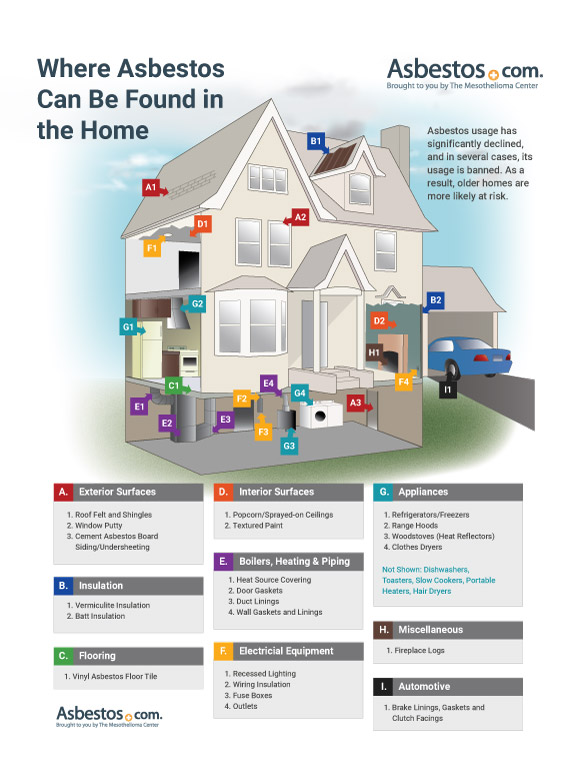
There may be a wide range of asbestos products in your home, including paint, insulation and floor tiles. Vintage consumer products in your home such as ovens, heaters, clothes dryers and refrigerators can also contain asbestos.
Older Products in Homes That May Contain Asbestos
- Appliances
- Cement asbestos board siding/undersheeting
- Insulation (attic, furnace, pipe, wall)
- Felt backing (flooring, roofing, wallpaper)
- Popcorn ceilings
- Textured paint
American manufacturers phased out asbestos in new products. But salvaged and vintage appliances and building materials may contain the toxic mineral. And some imported materials may contain asbestos. Imported roofing, siding and caulking have been found to contain asbestos.
Common Exposure Scenarios
Asbestos exposure in your home can happen in a few ways. Examples include DIY renovation, drilling through drywall, replacing an old pipe or removing popcorn ceilings. These activities can release tiny asbestos fibers into the air, contaminating the room. If fibers settle on your clothes, hair, skin or shoes, you can carry them through your home, spreading the risk to others in your household.
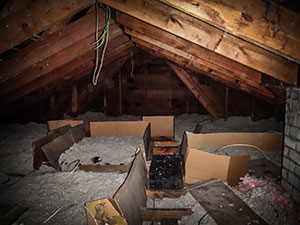
Attic Renovation
Risky scenario: While remodeling the attic of your 1960s home, you find piles of brown pebble-like insulation. You decide to replace the old insulation with new fiberglass. This would save money in the winter months. You scoop the loose insulation into some garbage bags and install the new material.
Safe scenario: You suspect your attic is insulated with asbestos-containing vermiculite. You don’t want to disturb the material, which would spread asbestos fibers into the air. You leave the insulation alone and have it professionally tested for asbestos.

Brake Dust in Home Garage
Risky scenario: You love working on your 1965 Corvette Stingray. When your brakes start to squeal, you want to replace them in your own garage. After removing the rear tires, you see the brake drums are covered in dust. You bang the sides with a hammer and blow off the dust with an air compressor.
Safe scenario: You’re aware some brake components contain asbestos. You’re concerned spraying them with compressed air can release toxic fibers into the air. You take your car to the shop for service. Auto shops have expensive tools that prevent exposure.
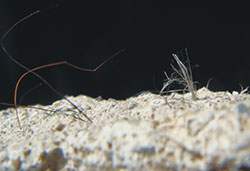
Drilling into Asbestos in Drywall
Risky scenario: You decide to renovate your home and remove part of a wall to open up your kitchen. You use tools to cut and remove the drywall, which generates a lot of dust.
Safe scenario: You suspect your older home was built with asbestos-containing drywall. You’re concerned if you take down the wall, asbestos fibers from the drywall will escape into your home. You opt for testing for asbestos before starting renovations.
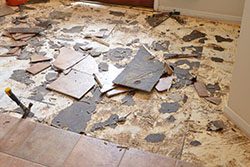
Removing Vinyl Floor Tiles
Risky scenario: You’ve just bought a 1950s fixer-upper in your hometown. Your first project is to upgrade the master bathroom. You decide to remove the vinyl floor tile. You remove the existing tiles with a scraper and install the new tile.
Safe scenario: You’re aware that asbestos was a common component in vinyl floor tiles in the 1950s. You know that using a scraper to remove the old flooring can release dangerous asbestos fibers. You consult an expert about testing and safe removal of the old tile or installing new tile over the asbestos-containing tile.
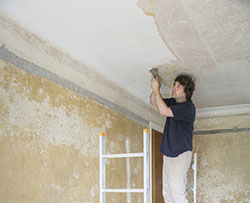
Popcorn Ceiling Removal
Risky scenario: You’re tired of the popcorn texture on the ceilings in your home. You know many popcorn ceilings can contain hidden asbestos, but you decide to scrape it off and repaint with a smooth finish anyway. After putting on eye protection and a dust mask, you grab a ladder and go to work. After lots of scraping, a little sanding and some careful painting, you’re finally done.
But scraping the ceiling released tiny asbestos fibers into the air. These fibers easily got past your dust mask. This elevates your risk of inhaling asbestos fibers, which can cause mesothelioma and other asbestos-related diseases.
Safe scenario: You know that if untouched, popcorn ceilings are generally considered safe. But if you try to remove it, asbestos fibers can become airborne. You also know looking at a ceiling likely won’t help you determine if it contains asbestos. Testing is the only way to know for sure. And DIY asbestos test kits are available, but they aren’t recommended.
So you hire licensed professionals to test for asbestos. These well-respected asbestos experts have the correct equipment for the job and know how to remove asbestos according to regulations and safety measures. They safely remove the asbestos-containing popcorn ceiling for you.

Cutting Insulation on Pipes
Risky scenario: When fixing up the basement of your late-1800s Victorian home, you notice the insulation around some of the hot water pipes is starting to deteriorate. To keep heat efficiency, you cut the old insulation with a utility knife. Then, you replace it with new fiberglass insulation.
Safe scenario: You know that many old plumbing systems have asbestos insulation. The insulation may pose an exposure risk even before starting the project. But cutting the damaged material would release even more fibers into the air. You hire an asbestos professional to safely remove or seal the insulation.

Understand your diagnosis, top doctors and ways to afford care.
Get Your Free GuideWhat Can I Do About Asbestos in My Home?
The U.S. Environmental Protection Agency recommends testing your home for asbestos if the building materials are damaged or you plan on disturbing them. Testing is recommended if you have damaged drywall or insulation. It’s also needed if you’re planning to remodel.
Disturbing these materials can release asbestos fibers into the air. Generally, you can’t tell which materials contain asbestos unless they’re labeled. If the building materials are in good condition or if you’re not planning a home remodel, testing is generally not required.
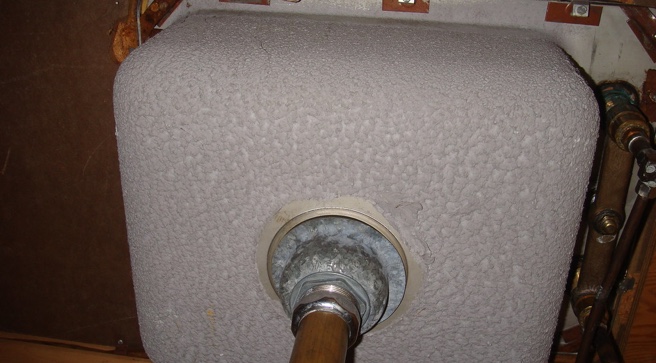
If you find something in your home that you suspect is asbestos, don’t touch it. Even if the material is in good condition, the best option is to leave it alone.
According to the U.S. Environmental Protection Agency, if the material appears damaged or future activities could disturb it, contact a trained and accredited asbestos professional. Limit access to the area until a professional can confirm the presence of asbestos.
To avoid asbestos exposure, learn about the asbestos materials in your home. This includes their locations and their condition.
How Can I Tell if a Material in My House Is Asbestos?
It’s extremely difficult to identify asbestos just by looking at it, so you need to send samples to a lab for testing.
It is not recommended to collect samples yourself. It’s safer to hire a trained asbestos professional for the job. They know what products to test and how to collect samples.
Search for “asbestos inspection” online to find a licensed expert in your area. The U.S. Department of Commerce offers a list of accredited asbestos laboratories online.
What Does Asbestos Look Like?
Asbestos ore in its natural form may appear in a range of colors, including white, green, blue and brown. When asbestos is processed it breaks down into fluffy fibers.
Asbestos in household products is hard to spot by sight. But you may see asbestos fibers in damaged materials that contain asbestos.
When damaged, asbestos materials may show small, fuzzy fibers. They may look like frayed fabric. However, seeing fibers protruding from a product does not mean it contains asbestos. Only testing can confirm the presence of asbestos.
How Much Asbestos Exposure Is Harmful?
In general, it takes a lot of repeated exposure to asbestos for related conditions to develop. It is rare for someone to get sick from asbestos products in their home, but it is possible.
Most people with asbestos-related diseases were exposed to asbestos at work for years. About 20% of heavily exposed asbestos workers end up developing a related condition.
Still, heavy, short-term asbestos exposures have been known to cause disease. According to a National Institute for Occupational Safety and Health report on asbestos, “No evidence of a threshold or safe level of exposure has been found.”
Asbestos Safety Dos and Don’ts
If you own an older home, take every precaution to avoid damaging materials that may contain asbestos.
- Avoid any contact with dangerous asbestos materials.
- Take every precaution not to damage any materials that may contain asbestos.
- Talk to your home inspector or real estate agent about any known asbestos risks in your home.
- Only hire trained professionals for asbestos inspections, testing, repairs or removal.
- If you plan to demolish a building, contact your local or state regulatory agency.
- Don’t saw, sand, scrape, drill or disturb materials that may contain asbestos.
- Don’t sweep, vacuum or dust debris that may contain asbestos.
- Don’t collect asbestos samples for testing without proper training.
- Don’t perform any work on or near asbestos materials unless you’re trained and certified.
- Don’t remove asbestos unless repair or concealment is impossible, and there’s a high risk for exposure.
- Don’t dispose of asbestos materials with normal household waste.
Even if a repair seems minor, you should hire a professional when asbestos may be present. Improper handling of safely managed asbestos can create a new risk of exposure.
How Do I Get Tested for Possible Exposure to Asbestos?
If you are concerned that you were exposed to asbestos, start by talking to your primary care physician. Tests can show asbestos fibers in lung tissue, lung fluid, urine, stool and mucus. They aren’t used because they can’t predict who will develop a disease.
There are tests to detect asbestos-related diseases. Your doctor can order scans that show signs of asbestos-related disease.
Asbestos-related conditions are hard to detect. Not all primary care doctors have the tools and experience to diagnose them.
If you know for certain that you were exposed to asbestos, it is a good idea to seek annual screenings from a qualified lung specialist such as an occupational pulmonologist. Most asbestos-related diseases are diagnosed at least 15 years after exposure.
How Much Does Asbestos Testing Cost?
The most common testing method, Polarized Light Microscopy (PLM), can range from $20 to $100 per sample. Some labs use Transmission Electron Microscopy (TEM), which is more expensive and more accurate.
The cost of asbestos testing varies depending on the number of samples tested and the methods used.
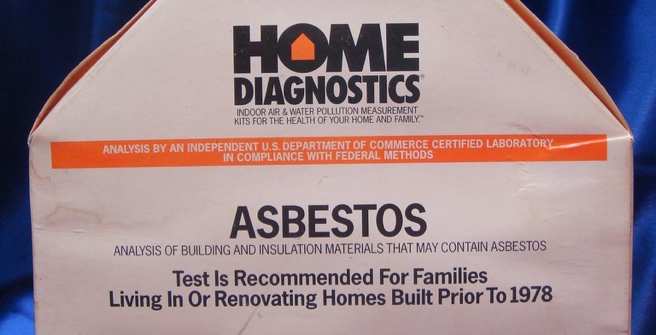
DIY test kits require you to mail samples to an accredited lab. They may charge an additional fee, typically around $40, for analysis.
However, collecting samples can create exposure risks. It’s best to hire a certified professional. The total cost of labor can run between $350 and $600. It offers peace of mind that the job will be safely completed.
What Happens if I Violate Asbestos Laws?
Any activity involving asbestos must follow U.S. EPA regulations and state asbestos laws. Some asbestos violations result in written warnings.
Others can bring criminal charges and prison time for violations. Depending on the severity of the infraction, daily civil penalties can reach $25,000.

